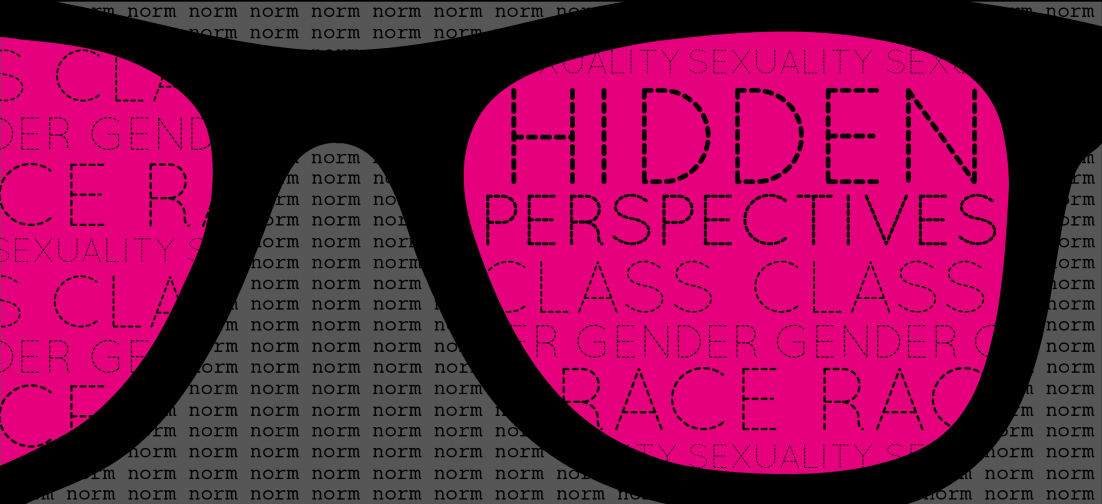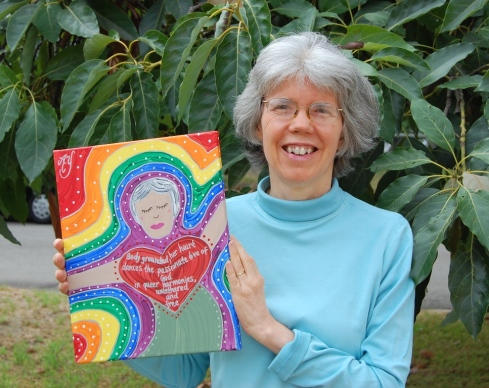Can you introduce yourself to our readers and give a brief overview of your research interests?
I am an undergraduate just about to finish a Physiological Sciences degree at Oxford. My degree has been focussed on neuroscience, but whilst at uni I have been exposed to ideas around queer theory and gender, which led me to the realisation that my gender is not simple or binary. My primary research interests are in developmental neuroscience; social cognition, vulnerability to mood disorders, criminality and – of course – where gender identity comes from in the first place. However, I was raised Christian and have retained that faith despite the difficulties of being a queer person in the Church, in part because of a largely queer-supportive Methodist church-background, and in part because of the explicitly LGBTQ-inclusive community that has supported me at MCC North London, which was also the community most involved in enabling me to come out as genderqueer. When I came out as “gay” (obviously a bit of a binary concept but I still identify with it to an extent) I found it helpful to my faith and to coping with an awareness of the systemic discrimination I would face in society and in the Church, to investigate the biblical basis – or, as it turned out, lack thereof – of theological homophobia. When I came out as genderqueer, this time fully aware that there was no biblical basis for transphobia, but intrigued to see whether God was planning to encourage me in being the the way I was created, I dove back in again!
How did you get involved with Hidden Perspectives?
Um, one of the organisers noticed me feeding the trolls on Facebook and messaged me I think!
I think your lecture title, “Jesus – the 4th wave feminist of the year 25AD” is one of the best at the Festival! Could you give us a sneak peek into what you are going to discuss?
The short version is that the Bible is much queerer than people think; and that this is no more apparent anywhere than in the Life of Jesus and the people he associated with. I’m not one of those who are of the opinion that Jesus and John were in a sexual relationship, but Jesus, it seems to me, was not so much celibate, as asexual, and his intense and close relationship with genderqueer St John sheds some light on just how clearly Jesus fits the admittedly modern concept of a queer ally. A pointed allyship to queer people, and a marked emphasis on socialist intersectionalist feminism, can only add up to one thing: that the person who millions of Christians around the globe believe was a flesh-and-blood incarnation of our creator God, was also the first ever feminist; and he was a 4th-waver.
Was it difficult to find information on Jesus & feminism for your paper? Do you feel the subject is overlooked?
I haven’t written a paper specifically on Jesus and feminism, although I have made reference to Tutu’s articulation of Ubuntu in my latest submission to Feminism & Psychology. The subject is overlooked in public debate, but not in the bible, which (perhaps ironically for someone with my view on biblical authority) was my main source for this investigation.
Why do you think projects like Hidden Perspectives are important right now?
Because the debate around LGBTQ rights is always framed as an either-or with religious freedom, and the rights of religious organisations; this leads to the impression that the only religious freedom at stake in the debate is the freedoms of those whose (in my view rather insufficient) theology leads them to feel that those rights conflict with theirs. The political issues get very muddled, and part of the problem is that people forget that legislating against having a religious same-sex marriage is actually going to have an impact on the freedoms of the many LGBTQ people of faith with faith-communities who support their right to be who God made them to be, and to love the person (or people!) that God has taught them to love. A big part of this debate which is more-or-less totally ignored in public fora is also the huge impact on the wellbeing of trans people and their spouses that requiring them to divorce before transition will have.
Most of all, I think that God is always doing new things, and God speaks with a still, small voice; incarnated as the son of an impoverished carpenter and a teenage mum, and ever since, as well as before then, God speaks through the voices of those who are silenced by prejudice. I don’t know if God will speak through me, but I hope so – and I’m sure God will be speaking through many of those at the Festival!
Why should people get involved? What’s your hope for people who do?
People should ask their consciences whether they can leave this issue silenced, or whether they will raise their voices with the thousands of queer people of faith to say that these things have a common point of origin – a God of love; and that love is the expression of God into the world. I hope that people will speak out for the needs and interests of queer people of faith and will find that in so doing, they are brought closer to God – whatever that means for them.
Do you believe LGBT and the Bible should be discussed together (under the same platform)?
Absolutely. No question. I think it is important to remember to discuss the authority of the bible but also, right now it seems as if the debate is always about people of faith versus queer people, as if there’s no intersection between those things – as if people like me don’t exist in the public mind. There is also the way that trans people are collectively akin to ‘the least of these’ in the way that, for example, ‘transition’ requires two years of ‘living in role’ which puts trans people at enormous risk for violence that could be avoided if they were allowed to access the procedures that would allow them to ‘pass’ for cis – it’s wrong that it should be necessary to pass, but as long as it is, this requirement, along with others, facilitates the literal violence and murder that trans people are so vulnerable to. In an NHS founded on the principle of ‘care at the point of need’, people are expected to wait for months to get the first appointment, and years from that appointment, to access life-saving medical assistance. The number of gender clinic referrals is going up 36% every year, and yet it is clear that funding is not going to be increased to reflect that increased need – and people are dying.
What are some of your hopes for the future of LGBT & Religion discussion?
I hope that people will start to see that from a legislative perspective, the two need not be in conflict, and that an attitude of live-and-let-live would make things easier for all concerned. I also hope that within faith organisations, LGBT people will become more visible and our contributions more recognised, and, over time, welcomed as an integral part of the Body of Christ; at the moment, the Church and other faiths have an autoimmune disease; rejecting a part of their own body!



